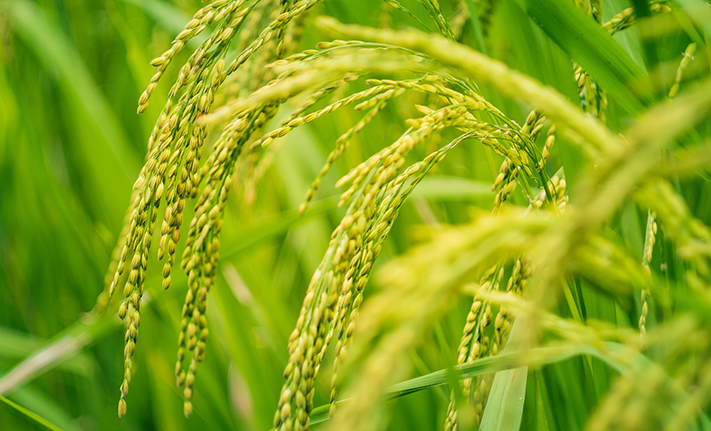On April 18, 2025, Khon Kaen University (KKU), led by Assoc. Prof. Dr. Thidarat Boonmard, Vice President for Enterprise and Sustainable Society, together with Asst. Prof. Dr. Jirawat Sanitjan, lecturer and researcher in plant breeding at the Faculty of Agriculture, project leader, and the project team, visited Kalasin Province to monitor the progress of the project “Promotion of Commercial Sticky Rice Production (KKU 60) for Seed Security”.
The project is supported under the Enterprise Development and Community-Society Sustainable Development Collaboration Fund (FY2024) in cooperation with the Organic Community Rice Center and the Community Enterprise Group for Rice Seed Production in Nong Hang Subdistrict, Kuchinarai District, Kalasin Province. The initiative aims to raise standards, increase yields for both domestic consumption and export, and ensure stable income for farmers.
Prof. Dr. Thidarat explained that the project’s objective is to promote the cultivation of the improved sticky rice varieties KKU 60-1 and KKU 60-2, both for seed production and grain production for domestic and international markets. The collaboration with the Organic Community Rice Center in Nong Hang focuses on organic cultivation methods. Meanwhile, KKU researchers have developed these two varieties, which are fragrant, soft-textured sticky rice strains. Currently, both varieties are in high demand but face seed shortages and limited cultivation areas. Expanding production areas and farmer participation will increase the supply of KKU 60-1 and KKU 60-2 seeds while also raising farmers’ incomes by at least 10%.
Asst. Prof. Dr. Jirawat added that the project in Nong Hang emphasizes rice varieties with superior traits: soft, fragrant, sticky grains, resistance to rice blast and bacterial leaf blight, and tolerance to saline soils.
- KKU 60-1 is highly resistant to rice blast and can be grown both in and out of season.
- KKU 60-2 is fragrant, sticky, and soft, with strong resistance to rice blast and salinity.
Both varieties are accepted by farmers and suitable for seed expansion and export. At present, seed production is being accelerated in both wet-season and dry-season cultivation to meet commercial demand. This marks a significant step in transferring improved rice varieties directly to farmers, enhancing Thailand’s rice production and export potential, as the country remains the world’s second-largest rice exporter.
He further stated that although the project is one year in duration, it contributes to long-term seed security. KKU has supported farmers with these varieties since 2018. The current production cycle, starting in FY2024, will conclude in May 2025, with progress indicating that the target of 30 tons of seeds will be met, sourced from wet-season and dry-season fields.
Over the past six months, the project expanded production to 266 rai (about 42 hectares), achieving an average yield of 550 kg/rai, which is higher than the national average (475 kg/rai). Thirty-six farming households participated, generating a total income of 2.39 million baht in FY2024.
Looking ahead, the project aims to expand exports of high-quality sticky rice to international markets. Farmers are already certified under Organic Thailand, EU Organic, and USDA-NOP standards, which will further increase the rice’s value and deliver better income opportunities for local farmers.
https://www.kku.ac.th/th/222450/



